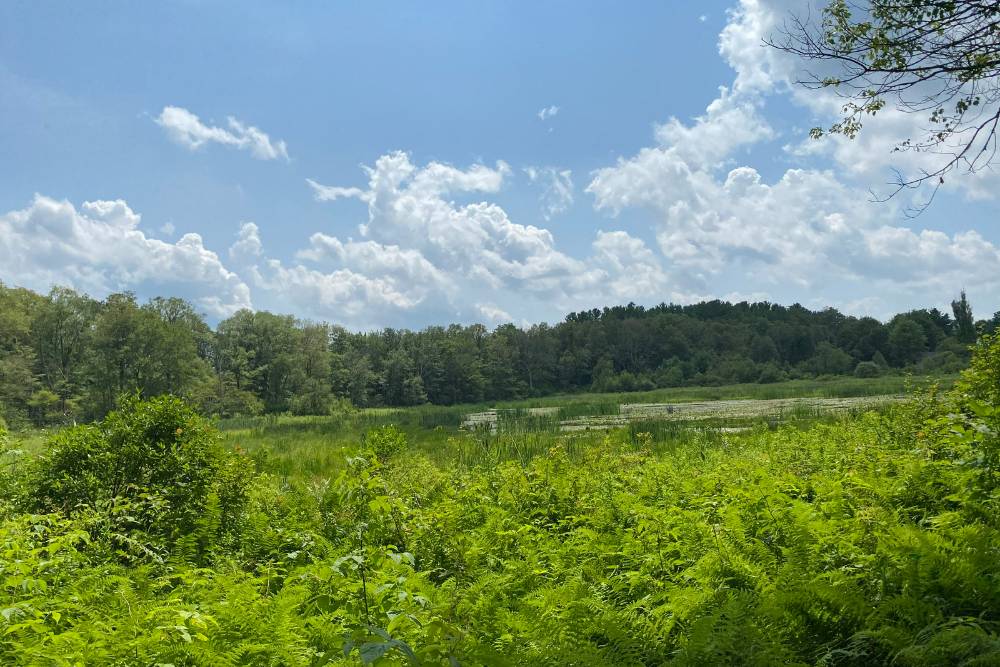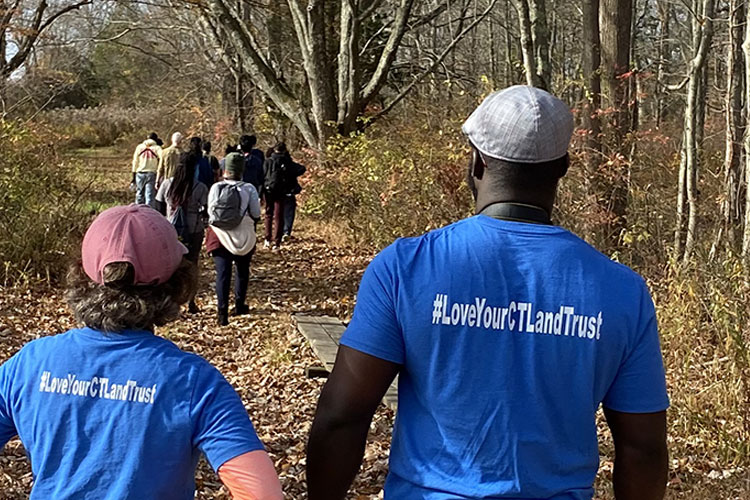News

It’s a wrap! On October 25, CLCC completed the Northwest Regional Land Trust Advancement Initiative, consisting of a series of roundtable discussions centered on bringing diversity, equity, inclusion, justice (DEIJ) and accessibility into community conservation work. These regional roundtables were offered thanks to generous grant support from the Connecticut Community Foundation.
Facilitated by equity trainers Ashley Stewart and David Sutherland, the discussions were robust and interactive, featuring representatives from diverse organizations who shared their missions and experiences in addressing social issues including food insecurity, housing, experiential education, and opportunities for people with disabilities.
SESSION SUMMARIES
Looking at Conservation More Broadly: David and Ashley offered a primer on DEIJ and challenged participants to explore diversity in conservation values across rural, suburban, and urban landscapes, setting the stage and tone for the next two sessions. The discussion created a space where land trusts, community groups, and partners were able to speak freely and ask questions about what DEIJ means and what it could and should look like in the context of their land conservation work.
Conservation that Addresses Social and Environmental Needs: Learning through CT Examples: This session featured representatives from organizations that use their land to address social and environmental issues, including food, housing, and opportunities for people with disabilities.
Following presentations from the panelists, participants asked a host of questions – seeking insights into the history, mission and vision of their respective organizations. They learned about challenges and opportunities to implement specific projects and programs, such as community gardens, job creation, farm infrastructure and creative partnerships to create more affordable housing.
Speakers: Brent Pinkerton (Gather New Haven), Cindy Hall and Lynn Grabowski (Creative Living Community of Connecticut), and Joanne Sheehan (Southeastern CT Community Land Trust);
“Accessibility in Nature”: Expanding our Community Reach: This final discussion highlighted projects from land trusts and other organizations, including CLCC Advancement Initiatives in other regions, that accounted for different accessibility concerns
The participants, panelists and facilitators kicked off the session with small breakout group discussions around what accessibility means to them and how they see it in the world. Many shared their ideas of expanding accessibility on their properties to those with disabilities, including for non-english speakers and those with mobility challenges. The panel was able to provide insight on education, accessible trails, transportation, belonging, and more. Participants shared their experiences in organizing events to cater to under-serviced community members, as well as discussing what factors that they may overlook and to consider.
Speakers: Elanah Sherman (Avalonia Land Conservancy); Mayra Rodriguez Gonzalez (UCONN Extension); Sydnee Foster (Roaring Brook Nature Center) and Yaw Owusu Darko (Connecticut Land Conservation Council)
EMELY’s TAKEAWAYS
The panelists brought the roundtable discussions to newer heights. With each introduction and presentation of their projects and missions, participants began to engage thoughtfully in how they could do more to engage with and assist their communities. Panelists brought together varied experiences and histories of the towns they are situated in, welcoming questions on projects and how they were able to navigate stakeholders and balance conservation and community.
We talked about how land conservation is often seen as maintaining nature in its natural state with the help of land stewards. But with intersecting issues that involve land like race, housing, development, and belongingness, we talked about how land conservation for some organizations can do more.
ACKNOWLEDGMENTS
CLCC is grateful to the Connecticut Community Foundation for its support in offering this set of roundtable discussions. These conversations created a space where land trust peers, community groups, and municipal partners in Northwest CT were able to discuss how our view of conservation can be expanded through DEIJ and the communities at large.
